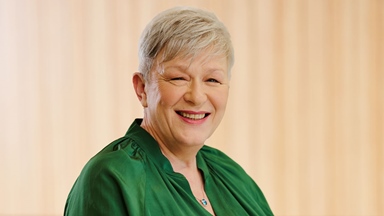Loading component...
At a glance
1. Looking ahead to 2035, what are the key skills accountants’ need in the workplace?
Many people in their first accounting role will be exposed to multiple career changes during their first decade of employment. A lot of those future roles aren’t here yet, which is why we are building educational foundations to cement accountants’ roles as trusted business advisers, regardless of career path.
The skills they will need to remain workplace relevant include technical literacy, particularly data analytics, which is already highlighted as a key skill by the latest World Economic Forum (WEF) Future of Jobs report.
"There’s no way, with the fast pace of change in the world, you can stop and say, ‘I’ve learned enough’."
Data storytelling will be key. It allows accountants to formulate suitable narratives to provide companies with insights to plan, invest and develop targeted and sustainable goals.
Critical thinking and problem solving – also listed as WEF top 10 skills – likewise need to be honed to support business growth.
It’s important to make sure members have the required base knowledge. Then it’s about honing specialisms, whether it’s sustainability, forensic accounting, cybersecurity or specialisms of the future.
2. In your experience, is the pace of change in education accelerating?
Absolutely. We have access to exponentially more data than ever before, which is why just-in-time learning is the way of the future.
People will have more agency in career design. They will build their own lifelong learning plans and determine how they will develop their careers.
3. Do you have thoughts on how AI will affect how we are educated and evaluated?
In education, AI is front and centre in everyone’s minds. It’s being utilised in several different ways across the learning journey, from developing randomly generated multiple choice questions, to providing simulated case studies and supporting student learning interventions.
In the CPA Program we are looking at AI-bot tutoring assistance. In addition, AI assists in identifying when students are struggling with a particular concept, which affords us the opportunity to intervene and help them.
4. Which personal attributes should young accountants be working on and why?
Resilience, patience, strategic thinking and mindfulness are key.
Accounting education used to be focused on black-and-white thinking. In the future, we will concentrate on the nuances that exist in business. The way we assess students will change the focus to how knowledge is applied.
This change will better equip young accountants to deal with the “grey” ethical dilemmas that happen in the application of real-world business decisions.
Marilyn Price FCPA: Never stop learning
5. What are three reasons why lifelong learning is important?
Firstly, there’s no way, with the fast pace of change in the world, you can stop and say, “I’ve learned enough”. The following saying has become overused, but it’s true: AI won’t take your job, but the people who can use it certainly will.
Secondly, lifelong learning is fun. It allows you to explore passions and interests outside of your everyday job. In fact, it might take your career in an unexpected direction.
Lastly, you can meet people outside of your usual sphere of influence. You will be exposed to a diversity of opinion you may not have encountered before – and that’s exciting.

